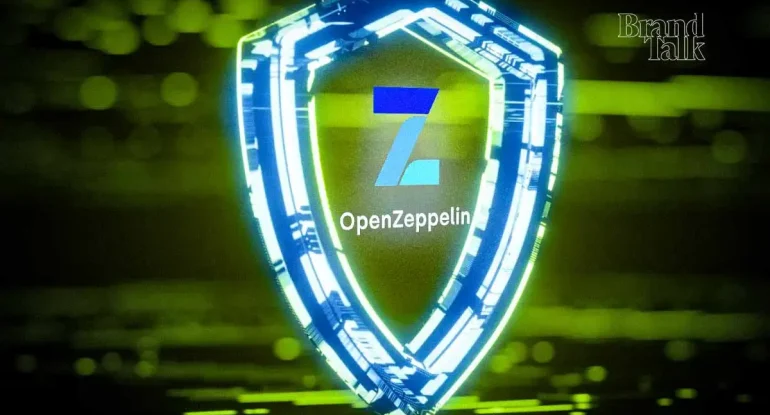Security: OpenZeppelin Launches Enhanced Tools

Ethereum Smart Contracts just got easier and safer! For all Ethereum developers out there, listen up: OpenZeppelin has just dropped Solidity Contracts v5.3, the latest version of their widely-used library that’s basically the gold standard for building secure smart contracts.
Think of OpenZeppelin as your trusted toolbox for creating secure smart contracts on Ethereum and other blockchains. Their library is packed with ready-to-use, secure code that developers rely on to build dependable and safe decentralized applications (dApps).
From the coolest NFT drops to massive, billion-dollar DeFi platforms, OpenZeppelin’s contracts are the backbone. And with this new v5.3 release, the team is continuing to tackle the real-world headaches of smart contract development – things like tricky governance, gas costs that can sting, and keeping up with ever-changing standards.
Excitingly, OpenZeppelin’s newest update is loaded with improvements aimed at boosting security, streamlining governance, enhancing performance, and making life easier for developers.
This upgrade isn’t just about bug fixes; it’s about empowering developers to build stronger DAO structures and giving them even more flexibility when designing token economies or on-chain voting systems.
What’s the biggest win for Ethereum Developers in this update?
Let’s talk Solidity. This programming language is the go-to for writing smart contracts that power the Ethereum blockchain. It’s a robust, high-level language that’s specifically designed to make sure your contracts execute securely.
Solidity is what makes dApps possible. It allows developers to bake the rules of an application – like token transfers or voting processes – directly into the blockchain itself.
One of the coolest features in this v5.3 release is definitely the revamped governance framework, especially the arrival of “GovernorWithSuperQuorum” and “ProposalGuard.”
These new tools are all about giving projects more command over how their DAOs (Decentralized Autonomous Organizations) make decisions.
📝 Core Contracts Highlights
ERC-6909 – New multi-token standard with:
• Minimal implementation
• Metadata support
• Supply tracking
• Content URI extensionGovernor Improvements:
• New Proposal Guardian role
• Added Sequential Proposal IDs
• New Super Quorum mechanism— OpenZeppelin (@OpenZeppelin) April 14, 2025
“Super quorum” is a smart move that lets developers set higher participation bars for crucial votes in governance proposals. This makes it tougher for major changes to slip through with low voter turnout. And “proposal guards” act as filters to catch and block potentially harmful proposals *before* they can be executed, adding a layer of protection for DAOs against malicious or accidental errors in governance.
The timing of these features is spot-on. Many DAOs are currently facing increased scrutiny when it comes to voter participation and the quality of proposals, making this upgrade a really timely and relevant improvement.
Meet ERC-6909: A Brand New Token Standard
But that’s not all! OpenZeppelin v5.3 also rolls out support for the experimental ERC-6909 token standard.
This fresh standard introduces a new, efficient, and flexible way to manage systems with multiple types of tokens.
Think about gaming worlds, metaverse experiences, or bustling marketplaces where you need different kinds of tokens to work together smoothly under a single contract. ERC-6909 could be a game-changer in these scenarios.
Error Handling Just Got Smarter
For a long time, error handling in Solidity has leaned heavily on `require()` statements with string messages. While developers have found this approach workable, it could be a bit heavy on gas consumption and not always the easiest to standardize.
With v5.3, OpenZeppelin has swapped out many of these with custom errors. The result? Lower gas costs and improved clarity all around.
What does this mean for developers? Not only are transactions going to be cheaper, but debugging and spotting errors will also become much clearer. As smart contracts get more and more intricate, these kinds of optimizations become crucial for keeping things running smoothly and reducing headaches during development and audits.
Want the full scoop on everything that’s changed? You can find the complete upgrade list right here:
Looking Ahead to More Secure Ethereum Smart Contracts?
As Ethereum keeps growing, especially with the rise of Layer 2 solutions and specialized chains, OpenZeppelin’s tools remain essential. The v5.3 release isn’t just a few tweaks here and there—it’s a significant step towards making smart contracts more modular, more secure, and truly ready for whatever the future of Ethereum throws our way.
Disclaimer: The content may include the personal opinion of the author and is subject to market conditions. Do your market research before investing in cryptocurrencies. The author or the publication does not hold any responsibility for your personal financial loss.





